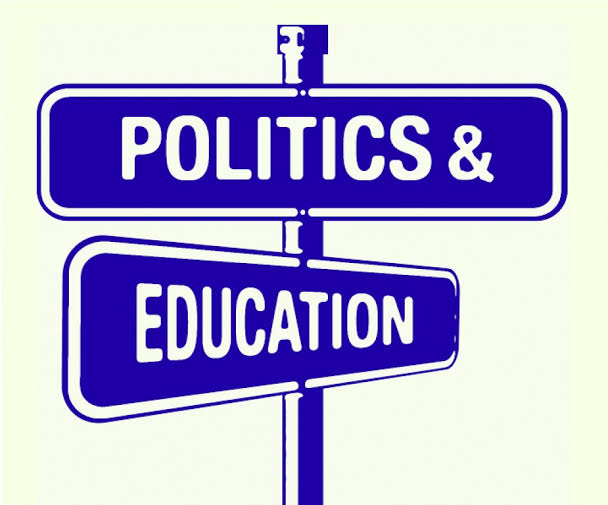Education in Nigeria like in many countries, is deeply intertwined with political dynamics shaping policies funding, curriculum development. Overall access to quality education is also affected. This article explores the multifaceted impact of politics on education in Nigeria. It examines how political decisions and governance influence education outcomes. It looks at equity and the socio-economic development of the nation.
Education is widely recognized as fundamental human right and key driver of individual empowerment and national development. In Nigeria education plays crucial role in shaping future generations. It fosters national unity, promoting socio-economic mobility. It addresses inequalities. However the Nigerian education system faces numerous challenges. There is inadequate funding. Infrastructure deficits persist. Teacher shortages and disparities in access to quality education across regions and socioeconomic groups remain problematic.
One significant impact of politics on education in Nigeria is political interference in the formulation and implementation of educational policies. Educational policies are often influenced by political interests. They reflect ideologies and agendas, which may not always prioritize the long-term educational needs of the population. Changes in government leadership can lead to shifts educational priorities. They trigger curriculum revisions and funding allocations. This results in disruptions impacting the continuity and effectiveness of educational programs.
Funding and Budget Allocation
Politics significantly affects the allocation of funds to the education sector in Nigeria. The federal and state governments are responsible for budgetary allocations to education, including funding for infrastructure development, teacher salaries, instructional materials, and educational programs. However, inadequate funding remains a persistent challenge, limiting the capacity of schools and educational institutions to provide quality education and meet the diverse needs of students.
Quality of Education
The quality of education in Nigeria is influenced by political decisions regarding curriculum development, teacher training, and educational standards. Political interference can undermine efforts to improve educational quality by prioritizing short-term goals over long-term investments in infrastructure, curriculum reform, and professional development for educators. Variations in educational quality across regions and socioeconomic groups reflect disparities in political will and resource allocation.
Teacher Policies and Professional Development
Effective teaching is central to educational quality and student achievement. Politics influences teacher policies, recruitment processes, training programs, and career progression in Nigeria. Challenges such as inadequate teacher training, high teacher turnover rates, and disparities in teacher qualifications affect the delivery of quality education. Political stability and commitment to investing in teacher professional development are crucial for enhancing teaching standards and student learning outcomes.
Access and Equity in Education
Access to quality education is uneven across Nigeria, with disparities influenced by political, economic, and socio-cultural factors. Politics plays a critical role in shaping policies that address barriers to education, including gender disparities, geographic location, socio-economic status, and disability. Efforts to promote inclusive education and expand access to marginalized groups require political commitment, targeted interventions, and equitable resource allocation.
Impact of Political Instability
Political instability and governance challenges in Nigeria have adverse effects on education. Civil unrest, security threats, and political crises disrupt school operations, hinder educational access, and undermine efforts to improve educational outcomes. Instability can also deter investment in education, exacerbate funding shortages, and erode public trust in government's ability to provide quality education and ensure educational equity.
Corruption and Mismanagement
Corruption and mismanagement in the education sector undermine efforts to improve educational outcomes and allocate resources effectively. Political patronage, embezzlement of funds, and irregularities in procurement processes divert resources intended for education, leading to inadequate infrastructure, poor learning conditions, and low teacher morale. Addressing corruption requires political will, transparency, and accountability in governance to ensure that education funds are used efficiently and effectively.
Community Engagement and Stakeholder Participation
Community engagement and stakeholder participation are essential for promoting transparency, accountability, and inclusive decision-making in education. Politics influences the extent to which communities, parents, civil society organizations, and educational stakeholders participate in policy formulation, school management, and advocacy for educational reforms. Strengthening partnerships between government agencies, educators, and communities can enhance educational governance and support sustainable improvements in education quality and access.
Future Directions and Recommendations
Addressing the impact of politics on education in Nigeria requires concerted efforts and strategic reforms:
Policy Stability and Long-term Planning: Establishing stable educational policies that prioritize long-term investments in infrastructure, curriculum development, and teacher professional development.
Enhanced Funding and Resource Allocation: Increasing budgetary allocations to education, ensuring equitable distribution of resources, and leveraging public-private partnerships to expand access to quality education.
Teacher Capacity Building: Investing in comprehensive teacher training, professional development programs, and incentives to attract and retain qualified educators.
Promotion of Inclusive Education: Implementing policies that promote gender equality, inclusive education practices, and support for marginalized groups to ensure equitable access to quality education.
Transparency and Accountability: Strengthening governance structures, promoting transparency in resource management, and combating corruption to enhance the efficiency and effectiveness of education delivery.
Conclusion
The impact of politics on education in Nigeria is profound, influencing policy formulation, funding priorities, educational quality, and access to opportunities. Addressing these challenges requires political commitment, stakeholder collaboration, and sustained efforts to prioritize education as a national priority. By investing in education, Nigeria can empower its youth, foster economic growth, promote social cohesion, and achieve sustainable development goals. As Nigeria continues its journey towards educational reform, addressing political influences on education will be crucial for building a brighter future for generations to come.
